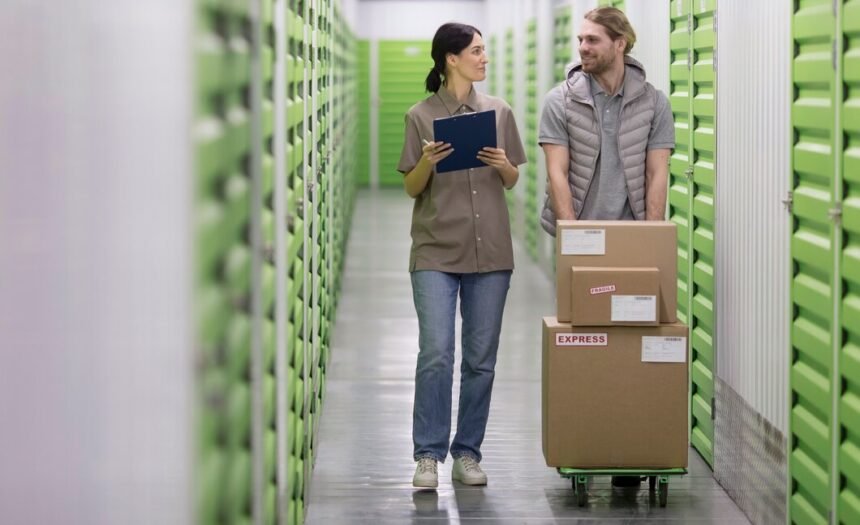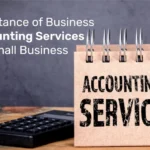Are you tired of feeling overwhelmed by clutter? Do you need more space but don’t want to move? If so, you’re not alone. Many people find themselves struggling to keep their belongings organized and accessible, especially in today’s fast-paced world. Thankfully, storage units offer a practical solution to these common problems. In this blog post, we’ll explore the benefits of storage units, how to choose the right one, and tips for making the most of your rented space. Whether you’re downsizing, moving, or simply need extra room, this guide will help you find the perfect storage solution.
Why Storage Units Are a Game-Changer
Storage units provide a convenient and affordable way to manage your belongings. They offer a secure and accessible place to store items you don’t need on a daily basis, allowing you to declutter your home and create a more organized living space. From seasonal decorations to business inventory, storage units in Seguin Tx can accommodate a wide variety of needs. Additionally, many facilities offer flexible rental terms, so you can find a solution that fits your budget and timeline.
Maximizing Your Space with Storage Units
One of the greatest advantages of storage units is their ability to maximize space. By moving non-essential items out of your home, you can free up valuable square footage and make your living environment more comfortable and functional. To get the most out of your storage unit, it’s important to organize your belongings efficiently. Start by categorizing items and packing them in labeled boxes. Use shelving units to keep things off the floor and make use of vertical space. This approach not only makes it easier to find what you need but also ensures that your items are stored safely and securely.
Choosing the Right Storage Unit Size
Selecting the right size storage unit is crucial for optimizing space and cost. Storage units come in a variety of sizes, ranging from small lockers to large garage-sized spaces. To determine the best fit for your needs, take an inventory of the items you plan to store and consider their dimensions. For example, a small unit might be sufficient for storing seasonal clothing and decorations, while a larger unit may be necessary for furniture and appliances. Many storage facilities offer size guides and calculators to help you make an informed decision.
Climate-Controlled vs. Non-Climate-Controlled Units
When choosing a storage unit, it’s important to consider whether you need climate control. Climate-controlled units maintain a consistent temperature and humidity level, which is ideal for storing sensitive items like electronics, artwork, and documents. These units protect your belongings from extreme weather conditions and prevent damage caused by moisture and temperature fluctuations. However, they tend to be more expensive than non-climate-controlled units. If you’re storing items that aren’t sensitive to environmental changes, a standard unit may be a more cost-effective option.
Security Features to Look For
Security is a top priority when renting a storage unit. Look for facilities that offer robust security features, such as gated access, surveillance cameras, and on-site staff. Some facilities also provide individual unit alarms and electronic gate access codes. It’s also a good idea to choose a facility with well-lit grounds and secure fencing. These measures can give you peace of mind knowing that your belongings are safe and protected.
Tips for Packing Your Storage Unit
Proper packing is essential for maximizing space and protecting your items. Start by using sturdy boxes and packing materials to prevent damage during transport and storage. Label each box with its contents and stack them strategically, placing heavier items at the bottom and lighter items on top. Use bubble wrap or packing paper to cushion fragile items and avoid overpacking boxes, as this can cause them to collapse. Additionally, consider creating an inventory list to keep track of your stored items and make retrieval easier.
Making the Most of Vertical Space
Utilizing vertical space is key to maximizing your storage unit’s capacity. Invest in shelving units or stackable bins to keep items organized and easily accessible. Place larger, bulkier items on the bottom shelves and smaller, lighter items on top. This not only helps you fit more into your unit but also makes it easier to find what you need. If you’re storing furniture, consider using the space underneath tables and beds to store smaller items.
Seasonal Storage Solutions
Storage units are perfect for managing seasonal items that take up valuable space in your home. Store holiday decorations, winter sports gear, and summer patio furniture in your unit during the off-season. This not only frees up space in your home but also keeps your seasonal items organized and protected. When storing seasonal items, make sure to label boxes clearly and place frequently used items near the front of the unit for easy access.
Storing Business Inventory
Many small business owners use storage units to manage their inventory. This is a cost-effective solution that provides additional space without the need for a larger office or warehouse. When storing business inventory, consider using shelving units to keep items organized and easily accessible. Label boxes with product names and SKUs, and create an inventory list to track stock levels. This approach can help streamline your operations and ensure that your products are stored safely and securely.
Moving and Storage
Storage units are a valuable resource during the moving process. They provide a temporary place to store your belongings while you transition to a new home. This is especially helpful if there’s a gap between your move-out and move-in dates. To make the moving process smoother, pack your storage unit strategically, placing items you’ll need first at the front. This ensures that you can easily access essential items without having to dig through the entire unit.
Decluttering Your Home
Decluttering can be a daunting task, but storage units make it easier to manage. Start by sorting items into categories such as keep, donate, and store. Move items you don’t need regularly into your storage unit to free up space in your home. This not only creates a more organized living environment but also reduces stress and improves your overall well-being. Remember to label boxes clearly and create an inventory list to keep track of your stored items.
Temporary Storage Solutions
Sometimes, you only need storage for a short period. Whether you’re renovating your home, traveling, or hosting an event, temporary storage units provide a flexible solution. Many storage facilities offer month-to-month rental agreements, allowing you to store your items for as long—or as short—a time as you need. When using temporary storage, pack items efficiently and label boxes clearly to make retrieval easier when it’s time to move your belongings back.
Long-Term Storage Considerations
If you plan to use a storage unit for an extended period, there are a few additional considerations to keep in mind. First, choose a facility with strong security features to protect your belongings over the long term. Second, consider the need for climate control to prevent damage from temperature and humidity fluctuations. Finally, make sure to check on your unit periodically to ensure that everything is in good condition and to address any issues that may arise.
Conclusion
Storage units offer a versatile and convenient solution for managing your belongings. From decluttering your home to storing business inventory, they provide the extra space you need without the hassle of moving. By choosing the right unit size, utilizing vertical space, and packing efficiently, you can make the most of your storage experience. Whether you need short-term or long-term storage, these tips will help you keep your items organized and accessible.










